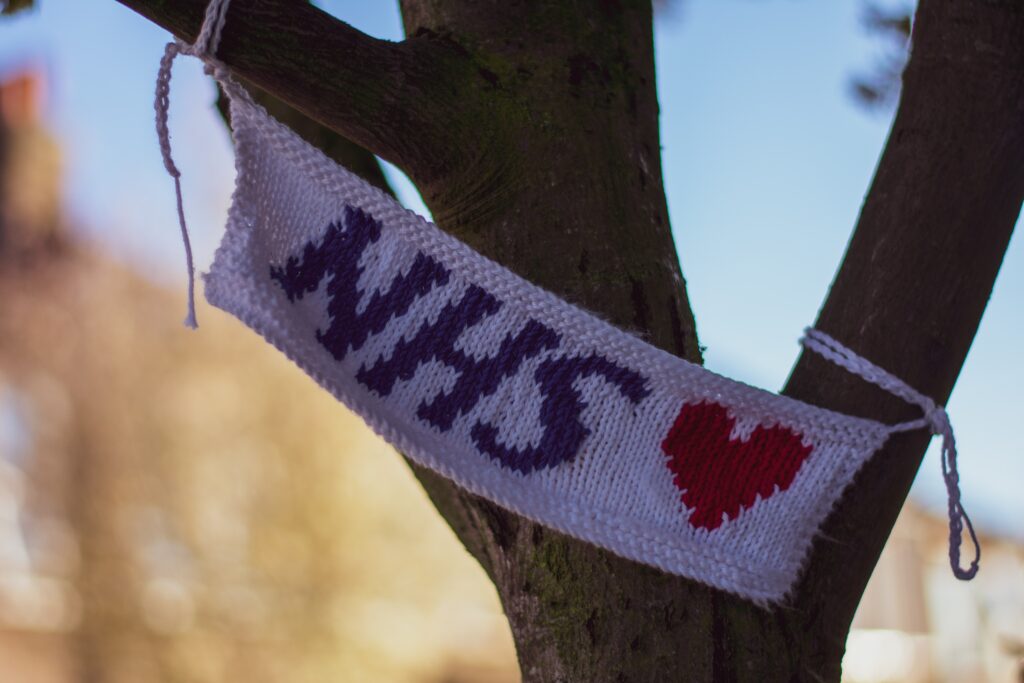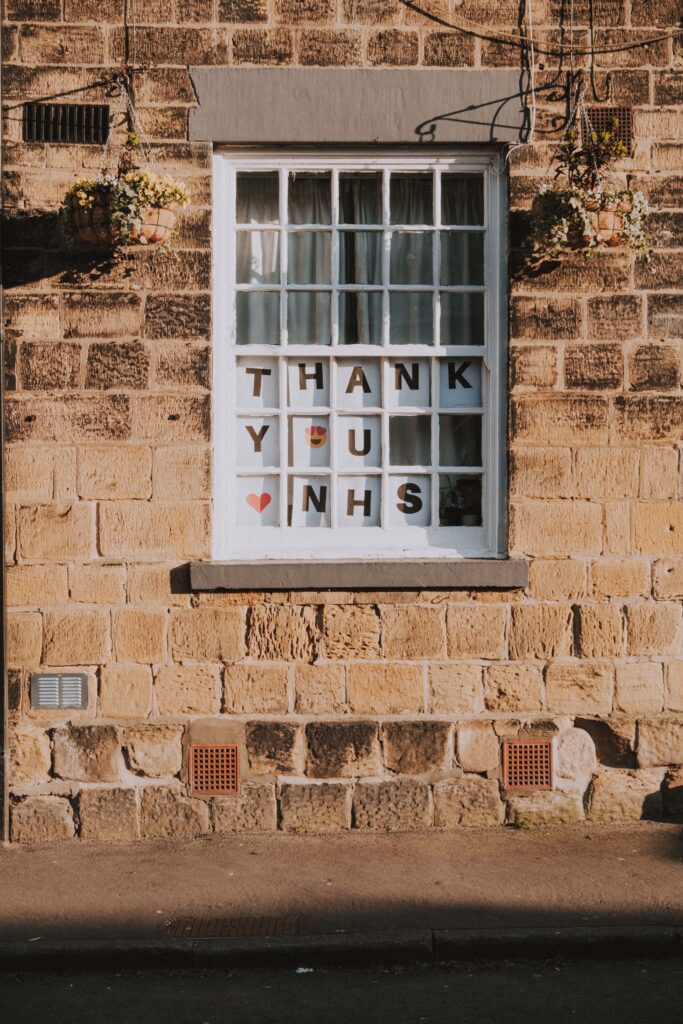Michael Hart, Creative Director, muses on the complicated relationship we have with the NHS.
When we talk about brands we tend to focus on the emotional connections they form in the head and heart. These connections can be fragile, transient – eroded by the promise of more enriching experiences elsewhere, the fickleness of consumers, and the indiscretions revealed when the mask slips. At the moment masks are slipping with regularity: Britannia Holidays, Wetherspoons, Virgin. Which is good news for the consumer. We get to see the shaky foundations that ‘we care deeply’ is built upon and can seek out a rival to take their place. But when we think of brands how many of us would ordinarily think of the NHS? Would it have got a name-check if you’d been asked back in January? I would suggest that the relationship we have with the NHS is the most profound and complex brand relationship we have. Trainers and smartphones don’t come close.

The NHS. It’s where most of us are born, and many of us will spend our final moments. It can save us, and it can let us down. But we can’t walk away from it (unless you’re in the 4% of the population with private healthcare). We want the NHS to be good, we need it to be. We convince ourselves that it’s the best in the world because our lives depend on clinging to that belief, whether it’s true or not. We have a strong respect for the institution, an unwavering love and admiration for its people, muttered cynicism for the trusts that operate in the shadows and a growing disdain for the politicians that keep it functioning. Word association is as likely to throw up ‘underpaid’ and ‘understaffed’ as ‘life-savers’ and ‘angels’. Our relationship with the NHS is indeed a complicated thing.
Since its creation in 1948 we’ve been bickering over funding, that we don’t value or pay these vital workers enough or invest in the facilities that will keep us all safe and healthy. And why is that? Why is our most precious institution existing in a seemingly permanent state of neglect? Why is it pushed front and centre in manifestos and held to ransom in referendums? The politicians know how much it means to us and will happily exploit it for power, which is what makes the NHS unlike most brands – it’s not in charge of its own destiny. It’s a brand controlled by another brand – the right or left leaning political party of the day. They can let it wither, nourish it with investment or keep it just topped up to stumble onwards. Our relationship with the NHS is a complicated thing.

But the brand that controls the brand that determines the fate of the NHS is another one altogether. It’s the British brand. That’s the one that you and me help build. It reflects the values and principles that we, as a nation, hold dear. So how’s our brand getting on? One minute we’re fighting over toilet paper in Tesco, the next we’re rattling pots and pans in solidarity. We project an image of fairness and tolerance but is it true? How do shape up against the rest of the world?
Cast your eyes over the Atlantic and we see that the economy, not the people, currently defines the American brand. Is that what we wish to emulate? Maybe we should look to form ‘special relationships’ with socially progressive countries like Germany and Sweden.
When the dust eventually settles coronavirus will reveal a harsh kind of truth about who we are. The data will be there in black and white, not seasonally adjusted or blamed on previous administrations. How did we cope? What measures did we put in place to keep our people safe? Were we competent, prepared, committed?
We expect the NHS to care for us.
But it can’t if we don’t care for it.
Our relationship with the NHS is a complicated thing.
